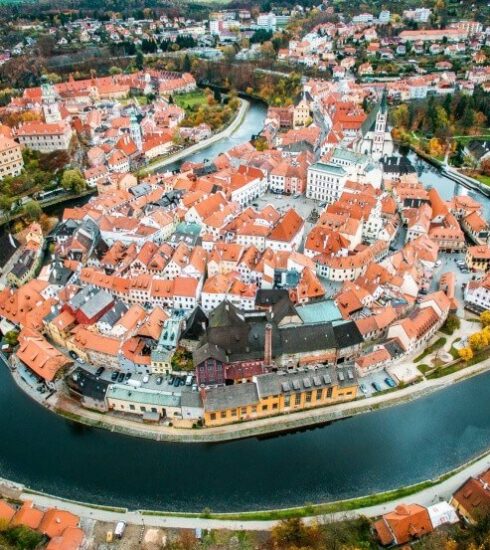Bed & Breakfast In Nigeria? Yes, Please
In October 2007, after moving to San Francisco, Brian Chesky and Joe Gebbia, two roommates and former schoolmates, came up with the idea of putting an air mattress in their living room and turning it into a bed and breakfast.
The following year, they set up a website offering short-term living quarters and breakfast for those who couldn’t book a hotel within the saturated market. They called it “AirBed & Breakfast,” which was eventually shortened and stylised as “Airbnb.” I remember growing up and receiving a lot of relatives in our house. I was largely unfamiliar with most of them, so we’d often call them August visitors because of the scarcity of their visits. Usually, they would come into town for whatever reasons. Rather than booking a hotel room, they stayed at ours, and we accommodated them with open arms because that’s what families do.
Sometimes I think about those days and try to drum up the numbers involved if they had to pay for those “favours.” Humans are wired to always ponder ways to maximise potential and make passive income whichever way we can. It is why we buy cars to take us to our 9-5 jobs and afterwards try to profit off of it by turning it into an Uber. However, this hasn’t transcended to our homes.
When Chesky and Gebbia came up with the Airbnb idea, they envisioned a personal experience where the hosts rent out a portion of their house (or all of it in cases where they are out of town) to guests imitating an overall breakfast inn geste. Fast-forward fourteen years later, the venture now has a global reach as there are Airbnb services in almost every country and headquarters in major cities worldwide; but it hasn’t yet cracked the Nigerian market.
Recently, there’s been a boom of short-term lease accommodations akin to what Airbnb offers, in Nigeria. Serviced apartments also referred to as “shortlets,” offer facilities much like a traditional hotel but with added space, convenience and privacy like home, so you can enjoy living like a local when travelling – and usually at a much lower cost. Shortlets offer much more than just the physical dimensions of an apartment, and the experience is very different from what you get in traditional hotel rooms.
The industry is slowly becoming more well-known even outside the business travel space as more leisure travellers are finding that serviced apartments are available and offer a credible and cost-effective alternative. They are especially economical for longer stays and for group and family travel, both because of the actual cost of the apartment compared to a hotel room but also because of the possibility of cooking for yourself and not having to eat out on every meal. These days, especially business travellers are looking for alternative accommodation solutions to have a more comfortable stay away from home. If you are a business professional who is continuously living out of a suitcase and staying in traditional hotel rooms, you will appreciate the features of a serviced apartment. They allow for space, privacy and comfort in your own surrounding and the freedom to do the same things you would do at home: Prepare your own meals in your kitchen, finish up work in the living room, throw your sports clothes in the washing machine after a run, then kick back and watch TV programmes in your bedroom.
Although this mirrors the Airbnb business prototype, it doesn’t quite include the shared experience that comes with harbouring a complete stranger in a room inside your home.
The global franchise, which meddles in the real estate and hospitality industries, has its services set up in Nigeria with its website and mobile application fully functional here and gets its fair share of hosts and guests interacting on its platform. However, the involved parties (hosts and guests alike) here in Nigeria would rather go through the serviced apartment route, which completely goes against Chesky and Gebbia’s vision.
Maybe we don’t have the best security globally; one could even argue that we are not the most welcoming of people of different ethnicities. Perhaps it’s ridiculously optimistic, and I’m immersed in the fantasy of a one- Nigeria, but “Bed & Breakfast” in a stranger’s home in Owerri for a weekend getaway, learning their culture and languages, eating their delicacies, might be nice. The question is: Are we ever going to get to that point?
Self-identifies as a middle child between millennials and the gen Z, began writing as a 14 year-old. Born and raised in Lagos where he would go on to obtain a degree in the University of Lagos, he mainly draws inspiration from societal issues and the ills within. His "live and let live" mantra shapes his thought process as he writes about lifestyle from a place of empathy and emotional intelligence. When he is not writing, he is very invested in football and sociopolitical commentary on social media.






